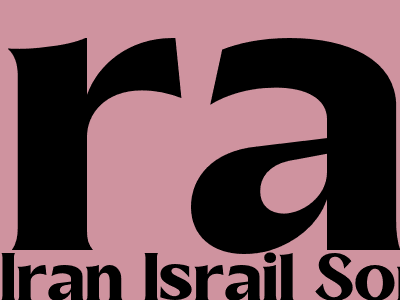Iran Israel: A Tense and Complex Relationship
Historical Tensions
The relationship between Iran and Israel has been marked by decades of hostility, rooted in political, religious, and historical factors.
Israel's establishment in 1948 was perceived by Iran as a Western imposition and a threat to its regional influence.
The 1979 Iranian Revolution further deepened tensions as the new Islamic regime viewed Israel as a symbol of Western imperialism.
Proxy Conflicts
Iran and Israel have been involved in numerous proxy conflicts in the Middle East, particularly in Lebanon and the Palestinian territories.
Iran supports Hezbollah, a Lebanese Shia militia, which has fought against Israel in several conflicts.
Israel, in turn, has targeted Iranian-backed groups in Syria and the Gaza Strip, leading to further tensions.
Nuclear Issue
Iran's nuclear program has been a major source of concern for Israel, which fears it could be used to develop nuclear weapons.
Israel has consistently opposed international agreements aimed at limiting Iran's nuclear activities, arguing they do not provide sufficient guarantees.
The issue has led to heightened military tensions between the two countries.
International Mediation
Attempts to mediate between Iran and Israel have had limited success.
While the 2015 nuclear deal temporarily eased tensions, it has since been unraveling, raising concerns about renewed conflict.
The United States, Russia, and other international actors have played roles in mediation efforts, but a comprehensive resolution remains elusive.
Regional Implications
The tensions between Iran and Israel have significant implications for the stability of the Middle East.
An escalation of conflict could draw in other regional powers, potentially triggering a wider war.
The conflict also complicates efforts to address other challenges in the region, such as the Palestinian issue and the ongoing civil war in Syria.

Komentar